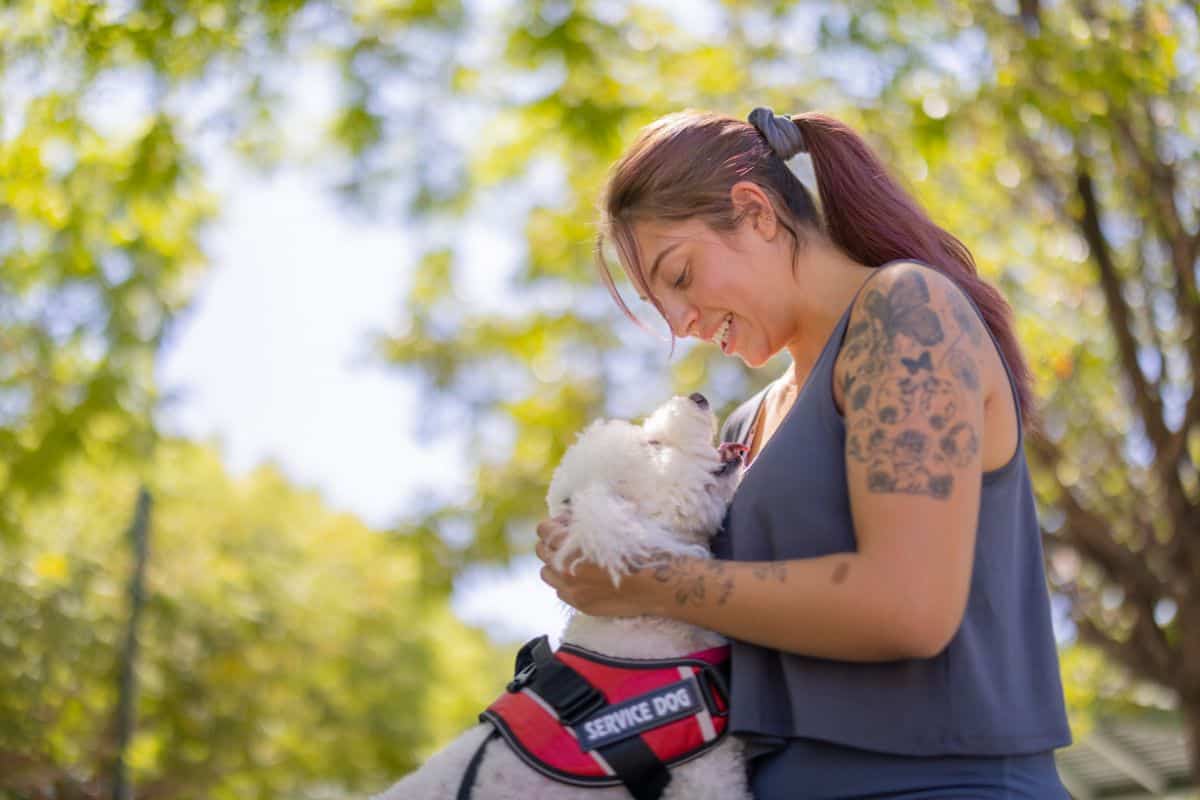To make your dog a service dog, you need to train it for specific tasks and behavior. This may include obedience training, socialization, and teaching it to assist with your specific disability or condition.
Having a service dog can be a life-changing experience for individuals with disabilities. Service dogs are highly trained to help their owners with daily tasks and provide emotional support. If you have a dog that you believe would make a great service dog, there are steps you can take to make it happen.
In this guide, we’ll explore how you can train and certify your dog to become a service dog, and the benefits it can provide for you as its handler. Whether you have a pet that shows promise or you’re considering getting a dog to train as a service animal, this information will help you understand the process and responsibilities involved in making your dog a service dog.
Understanding Service Dogs
Service dogs are specially trained to assist individuals with disabilities, performing tasks that enhance their quality of life. These animals can provide various types of support based on their training. Service dogs can be guide dogs for the visually impaired, hearing dogs for the deaf, mobility assistance dogs, medical alert dogs, and psychiatric service dogs, among others.
Service dogs play a crucial role in the lives of people with disabilities, providing them with independence, companionship, and security. These dogs undergo extensive training to perform specialized tasks tailored to their handler’s needs.
| Type of Service Dog | Description |
| Guide Dogs | Assist individuals with visual impairments by navigating obstacles and guiding them safely. |
| Hearing Dogs | Alert deaf and hard of hearing individuals to important sounds and provide assistance in daily tasks. |
| Mobility Assistance Dogs | Help individuals with mobility issues by retrieving items, opening doors, and providing physical support. |
| Medical Alert Dogs | Recognize and respond to specific medical conditions, such as seizures or diabetic emergencies. |
| Psychiatric Service Dogs | Offer comfort and support for individuals with mental health conditions by providing emotional stability and interrupting harmful behaviors. |
Service dogs significantly improve the quality of life for individuals with disabilities, enabling them to lead more independent and fulfilling lives. These animals serve as valuable companions and provide vital support in performing daily activities, enhancing their handler’s confidence and well-being.
Under the Americans with Disabilities Act (ADA), service dogs are granted certain rights and legal protections. They are permitted to accompany their handlers in public places, including establishments where pets are typically not allowed. Additionally, service dog handlers are not required to disclose details about their disabilities, as their privacy is safeguarded by the law.

Credit: www.theacademyofpetcareers.com
Qualities And Training For Service Dogs
Service dogs require specific qualities and training to effectively assist their owners. Key traits of a service dog include intelligence, loyalty, and a calm temperament. Basic obedience training is essential for all service dogs to ensure they respond to commands reliably. Additionally, advanced service dog training is necessary to teach specific tasks and skills tailored to the individual needs of their owners. This can include assisting with mobility, retrieving items, or providing emotional support. Training should be consistent, using positive reinforcement techniques to reinforce desired behaviors. Overall, making a dog a service dog involves a combination of innate qualities and structured training to support their role in enhancing the quality of life for their owners.
Certification And Registration
When making your dog a service dog, it’s important to understand the steps required for certification. The process involves a thorough training program focused on the specific needs of the individual, followed by an assessment to ensure the dog meets the necessary criteria. It’s important to remember that obtaining certification can be a time-consuming and rigorous process.
Registration is a crucial step for service dogs. It provides legal recognition and ensures that the dog receives the necessary legal protections and accommodations. Owners of service dogs must be aware of the ongoing responsibilities that come with this role. Encompassing the care, training, and well-being of the dog, these ongoing responsibilities are essential in maintaining the certification and registration of the service dog.
Frequently Asked Questions For How Do You Make Your Dog A Service Dog
What Are The Three Questions You Can Ask About A Service Dog?
You can ask about the service dog’s training, tasks, and legal rights.
How To Catch A Fake Service Dog?
To catch a fake service dog, observe its behavior for signs of aggression or disobedience. Ask for documentation if in doubt, and report suspicious cases to authorities. Engage in respectful conversation with the owner to gather information about the dog’s training and purpose.
How Do I Get My Dog To Fly As A Service Dog?
To fly with a service dog, get an official diagnosis and a recommendation from a licensed mental health professional. Then, register your dog with a recognized service dog organization and complete training. Finally, ensure your dog behaves well in public and follows airline requirements.
Is United Service Dog A Legit Site?
Yes, United Service Dog is a legitimate website providing service dog registration and products.
Conclusion
Making your dog a service dog requires proper training and certification. Understanding the legal requirements and the specific needs of the individual are crucial. Consistent training, patience, and dedication play a significant role in the process. Remember to seek professional guidance to ensure the best outcome for both you and your service dog.



